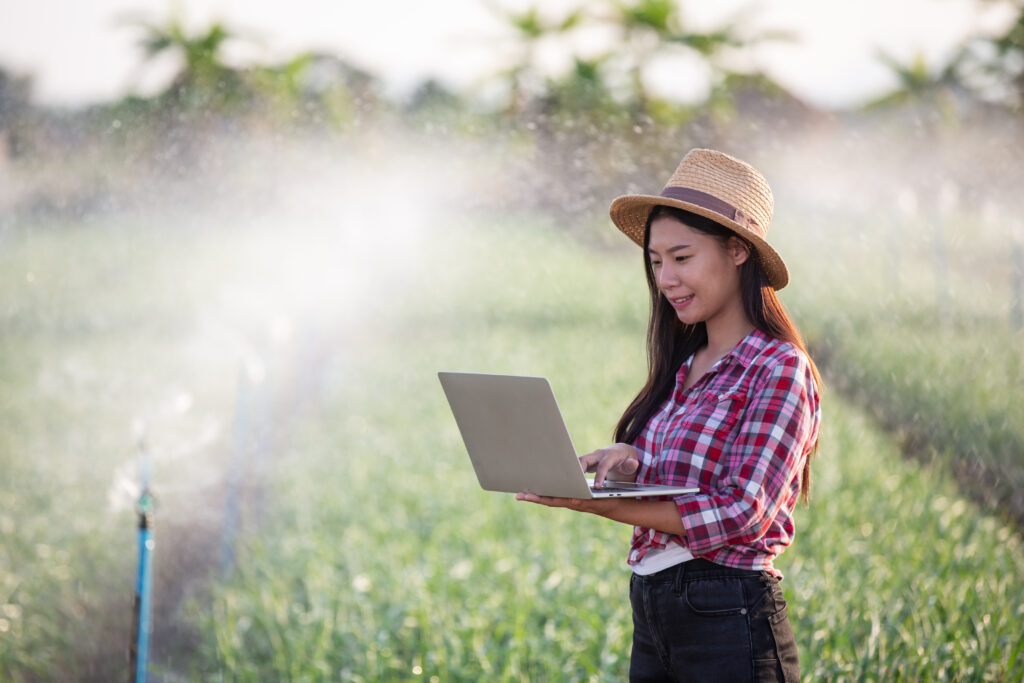“Discover the incredible advantages of sprinkler irrigation in agriculture. Learn how this modern technique boosts crop yield, conserves water, and promotes sustainable farming practices. Explore the benefits of efficient, environmentally friendly irrigation methods.”

Introduction
Sprinkler irrigation is a modern and efficient method of water distribution that has revolutionized agriculture. This article explores the numerous benefits of using sprinkler irrigation, from increased crop yield to environmental sustainability. Let’s dive into how this technology is transforming the world of farming. (Irrigation System)
Increased Crop Yield
One of the primary advantages of sprinkler irrigation is the significant increase in crop yield. By providing a consistent and even distribution of water, this method ensures that each plant receives the right amount of moisture, promoting healthy growth. This leads to larger and higher-quality harvests. (Soil Horizons)

Water Efficiency
In an era where water conservation is of utmost importance, sprinkler irrigation stands out. It allows for precise control of water delivery, reducing wastage. By providing water directly to the root zone, it minimizes evaporation and runoff, making the most efficient use of this precious resource.
Reduced Labour Costs
Compared to traditional irrigation methods, which require manual labour, sprinkler irrigation is highly automated. This automation reduces the need for a large workforce, cutting labour costs significantly.
Fertilizer and Pesticide Distribution
Sprinkler systems can be designed to distribute fertilizers and pesticides along with water. This targeted approach ensures that these essential inputs are applied where they are needed most, optimizing plant health and minimizing waste.

Improved Soil Structure
Regular use of sprinkler irrigation contributes to improved soil structure. It prevents soil compaction and erosion, which can occur with other irrigation methods. Healthy soil is more conducive to plant growth and root development.
Weed Control
By directing water only to the crop’s root zone, sprinkler irrigation inhibits weed growth between rows. This reduces the need for herbicides and manual weeding, saving both time and money for farmers.
Reduced Erosion
Erosion is a significant concern in agriculture. Sprinkler irrigation minimizes soil erosion by evenly distributing water. This helps maintain the topsoil, preventing it from washing away during heavy rains.
Frost Protection
In regions prone to frost, sprinkler irrigation can provide protection by releasing warm water when temperatures drop. This protective measure can prevent frost damage to crops, ensuring a consistent harvest.
Versatility in Crops

Sprinkler systems can be adapted to different crop types and field sizes. This flexibility allows farmers to diversify their crop selection, increasing their economic stability.
Energy Savings
Sprinkler irrigation consumes less energy compared to other irrigation methods. This energy efficiency results from automated controls and the ability to water crops precisely.
Environmentally Friendly
Due to its water efficiency, reduced chemical usage, and prevention of soil erosion, sprinkler irrigation is considered environmentally friendly. It aligns with sustainable farming practices and conserves natural resources.

Lower Maintenance Costs
While initial setup costs may be higher, sprinkler irrigation systems require less maintenance compared to traditional methods. This reduces long-term operational expenses for farmers.
Consistent Application
Consistency is key in agriculture, and sprinkler irrigation offers just that. It ensures a uniform application of water, fertilizers, and pesticides, resulting in predictable and improved crop quality.
Conclusion
Sprinkler irrigation is undeniably a game-changer in modern agriculture. Its benefits include increased crop yield, water efficiency, reduced labour costs, and environmentally friendly practices. Farmers can take advantage of this innovative technology to ensure a bountiful harvest while promoting sustainable farming practices. (websoftempire)
How does sprinkler irrigation affect crop quality?
Sprinkler irrigation ensures consistent water, fertilizer, and pesticide distribution, leading to improved crop quality.
Is sprinkler irrigation suitable for all crop types?
Yes, sprinkler systems are adaptable and can be customized for various crop types.
How does sprinkler irrigation save water?
It minimizes water wastage by delivering water directly to the root zone, reducing evaporation and runoff.
What are the environmental benefits of sprinkler irrigation?
It reduces chemical usage, prevents soil erosion, and conserves water resources, promoting sustainability.
Are there any government incentives for adopting sprinkler irrigation?
Many governments offer incentives and subsidies to encourage the adoption of water-efficient irrigation methods like sprinklers.